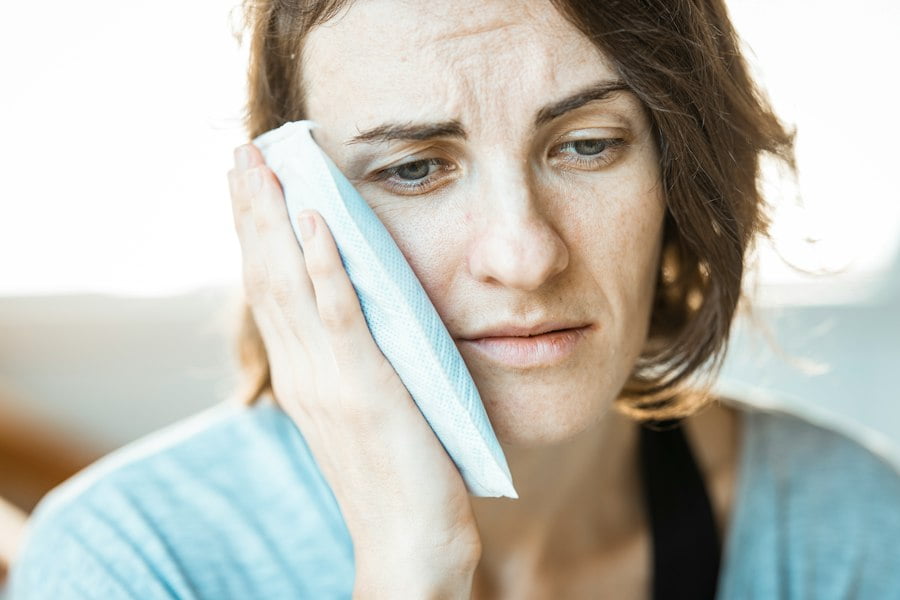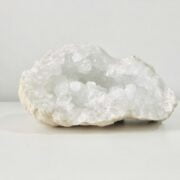
Unlocking the Healing Power of Acupuncture: How It Can Improve Pain Management and Boost Your Overall Well-Being
Acupuncture is an ancient practice that has been used for thousands of years to promote health and well-being. Originating in China, acupuncture is a key component of Traditional Chinese Medicine (TCM) and is based on the belief that the body has a vital energy called Qi that flows through channels known as meridians. By stimulating specific points along these meridians, acupuncture aims to restore balance and harmony within the body.
Key Takeaways
- Acupuncture is an ancient practice that involves the insertion of thin needles into specific points on the body to promote healing and balance.
- The science behind acupuncture suggests that it works by stimulating the nervous system, releasing endorphins, and reducing inflammation.
- Acupuncture can be an effective treatment for chronic pain, including back pain, headaches, and arthritis.
- Acupuncture has been shown to improve mood, reduce stress, and alleviate symptoms of anxiety and depression.
- Acupuncture can help boost the immune system and improve overall health, and can be used in combination with other holistic and Western medical treatments.
The Basics of Acupuncture: Understanding the Ancient Practice
Acupuncture is a holistic healing technique that involves the insertion of thin needles into specific points on the body. These points, known as acupuncture points or acupoints, are believed to be connected to the body’s meridians, which are pathways through which Qi flows. According to TCM principles, when Qi becomes blocked or imbalanced, it can lead to illness and disease. Acupuncture aims to restore the flow of Qi and promote overall health and well-being.
The principles of TCM form the foundation of acupuncture. TCM views the body as a whole, interconnected system, where all aspects – physical, mental, emotional, and spiritual – are interconnected and influence each other. TCM also recognizes that the body has an innate ability to heal itself when given the right support. Acupuncture is one way to provide that support by stimulating the body’s natural healing mechanisms.
One of the key concepts in acupuncture is Qi, which can be translated as energy or life force. According to TCM, Qi flows through meridians or channels in the body and is responsible for maintaining health and vitality. When Qi becomes blocked or imbalanced, it can lead to pain, illness, and other health problems. Acupuncture aims to restore the flow of Qi by stimulating specific acupoints along the meridians.
How Acupuncture Works: The Science Behind the Treatment
While acupuncture has been practiced for thousands of years, the scientific understanding of how it works is still evolving. However, research has shed light on some of the neurophysiological mechanisms behind acupuncture.
One theory is that acupuncture stimulates the release of endorphins, which are natural pain-relieving chemicals produced by the body. Endorphins can help reduce pain and promote a sense of well-being. Acupuncture may also stimulate the release of other neurotransmitters and hormones, such as serotonin and dopamine, which can have mood-enhancing effects.
Acupuncture has also been found to have effects on the nervous system. Studies have shown that acupuncture can modulate the activity of the autonomic nervous system, which controls involuntary bodily functions such as heart rate and digestion. It can also affect the release of neurotransmitters and neuropeptides, which play a role in pain perception and inflammation.
Pain Management: How Acupuncture Can Help Alleviate Chronic Pain
| Chronic Pain Condition | Percentage of Patients Who Experienced Relief with Acupuncture |
|---|---|
| Back Pain | 65% |
| Neck Pain | 55% |
| Headaches/Migraines | 75% |
| Arthritis | 50% |
| Fibromyalgia | 70% |
One of the most well-known uses of acupuncture is for pain relief. Acupuncture has been found to be effective in treating various types of chronic pain, including back pain, neck pain, osteoarthritis, and migraines.
Acupuncture works by stimulating specific acupoints that are believed to be connected to the areas of pain or discomfort. This stimulation can help reduce inflammation, increase blood flow, and promote the release of endorphins, all of which can help alleviate pain.
In addition to its direct effects on pain relief, acupuncture can also have a positive impact on overall well-being. Chronic pain can often lead to feelings of stress, anxiety, and depression. Acupuncture can help address these emotional aspects by promoting relaxation and reducing stress levels.
Mental Health Benefits: How Acupuncture Can Improve Your Mood and Reduce Stress
In addition to its physical benefits, acupuncture can also have a positive impact on mental health. Acupuncture has been found to be effective in treating conditions such as anxiety, depression, and insomnia.
Acupuncture can help regulate the body’s stress response by stimulating the release of endorphins and other neurotransmitters that promote relaxation and reduce anxiety. It can also help balance the body’s energy and promote a sense of calm and well-being.
Acupuncture can also be beneficial for those experiencing sleep disturbances. By promoting relaxation and reducing stress levels, acupuncture can help improve sleep quality and duration.
Boosting Immunity: How Acupuncture Can Help Strengthen Your Body’s Defenses

Another area where acupuncture has shown promise is in boosting the immune system. Acupuncture has been found to have immunomodulatory effects, meaning it can help regulate the immune response and strengthen the body’s defenses against illness and disease.
Acupuncture can stimulate the production of immune cells, such as white blood cells, which play a key role in fighting off infections. It can also help regulate the release of cytokines, which are proteins that help coordinate the immune response.
Acupuncture has been used to support the immune system in various conditions, including allergies, autoimmune disorders, and chronic infections. By promoting balance and harmony within the body, acupuncture can help optimize immune system function.
Alternative Therapies: Exploring Other Holistic Approaches to Healing
Acupuncture is just one of many holistic therapies that aim to promote health and well-being. Other holistic approaches include herbal medicine, massage therapy, yoga, meditation, and dietary changes.
These therapies share a common philosophy of treating the whole person rather than just the symptoms of a specific condition. They recognize that physical health is interconnected with mental, emotional, and spiritual well-being.
While each therapy has its own unique benefits, they can also complement each other when used together. For example, acupuncture can be combined with herbal medicine to enhance its effects or with massage therapy to promote relaxation and reduce muscle tension.
Combining Therapies: How Acupuncture Can Complement Western Medicine
Acupuncture can also be used in conjunction with Western medicine to provide a comprehensive approach to health and wellness. Many conditions can benefit from a combination of therapies, as they each have their own strengths and limitations.
For example, acupuncture can be used alongside medication to manage chronic pain or to reduce the side effects of certain medications. It can also be used in conjunction with physical therapy to enhance recovery from injuries or surgeries.
Communication between practitioners is key when combining therapies. It is important for acupuncturists and Western medical practitioners to work together and share information about the patient’s condition, treatment plan, and progress. This collaboration can help ensure that the patient receives the most effective and appropriate care.
Choosing a Practitioner: Tips for Finding a Qualified Acupuncturist
When seeking acupuncture treatment, it is important to find a qualified and reputable acupuncturist. Here are some tips to help you find the right practitioner:
– Look for qualifications and certifications: Acupuncturists should have completed a formal training program and be licensed or certified by a recognized governing body.
– Ask about experience: Inquire about the acupuncturist’s experience in treating your specific condition or concern.
– Seek recommendations: Ask for recommendations from friends, family, or healthcare professionals who have had positive experiences with acupuncture.
– Research online: Read reviews and testimonials from previous patients to get an idea of the acupuncturist’s reputation.
– Trust your instincts: It is important to feel comfortable and confident with your acupuncturist. Trust your instincts and choose someone who you feel is a good fit for you.
What to Expect: A Step-by-Step Guide to Your Acupuncture Session
If you have never had acupuncture before, it is natural to feel curious or even apprehensive about what to expect. Here is a step-by-step guide to help you prepare for your acupuncture session:
1. Consultation: Your first session will typically begin with a consultation, where the acupuncturist will ask you about your medical history, current symptoms, and treatment goals. This is an opportunity for you to ask any questions or express any concerns you may have.
2. Diagnosis: The acupuncturist will then perform a diagnosis, which may involve examining your tongue, feeling your pulse, and palpating certain areas of your body. This will help the acupuncturist determine the underlying imbalances or blockages that may be contributing to your symptoms.
3. Treatment plan: Based on the consultation and diagnosis, the acupuncturist will develop a treatment plan tailored to your specific needs. This may involve a series of acupuncture sessions, as well as recommendations for lifestyle changes or herbal remedies.
4. Acupuncture treatment: During the acupuncture treatment, you will lie down on a comfortable table while the acupuncturist inserts thin needles into specific acupoints on your body. The needles are typically left in place for about 20-30 minutes while you relax.
5. Sensations: You may experience various sensations during the treatment, such as a slight tingling or warmth around the needle insertion sites. These sensations are normal and are a sign that the acupuncture is working.
6. Follow-up: After the treatment, the acupuncturist may provide you with recommendations for self-care or follow-up treatments. It is important to communicate any changes or improvements in your symptoms so that the treatment plan can be adjusted as needed.
Incorporating Acupuncture into Your Health Routine: How to Make the Most of Your Treatment Plan
To make the most of your acupuncture treatment plan, it is important to incorporate it into your overall health routine. Here are some tips to help you do just that:
1. Be consistent: Consistency is key when it comes to acupuncture. Stick to your treatment plan and attend all scheduled sessions to maximize the benefits of acupuncture.
2. Follow recommendations: Your acupuncturist may provide you with recommendations for lifestyle changes, dietary modifications, or herbal remedies. Follow these recommendations to support your acupuncture treatment.
3. Track your progress: Keep a journal or record of your symptoms, treatments, and any changes or improvements you notice. This can help you and your acupuncturist track your progress and make adjustments to your treatment plan as needed.
4. Communicate with your acupuncturist: It is important to maintain open communication with your acupuncturist. Let them know about any changes in your symptoms, any new concerns or questions you may have, and any other treatments or medications you are undergoing.
5. Take care of yourself: In addition to acupuncture, prioritize self-care activities that promote overall health and well-being. This may include getting regular exercise, practicing stress management techniques, eating a balanced diet, and getting enough sleep.
Acupuncture is a time-tested practice that offers a holistic approach to health and well-being. It can be used to manage pain, improve mental health, boost the immune system, and complement Western medicine. By finding a qualified acupuncturist and incorporating acupuncture into your health routine, you can experience the many benefits that this ancient practice has to offer. Give acupuncture a try and discover how it can support your overall health and wellness journey.
If you’re interested in exploring alternative therapies for pain management and overall well-being, you may want to check out Wave Magnets. They offer a unique approach to healing through the use of magnetic therapy. Magnetic therapy has been used for centuries to alleviate pain, reduce inflammation, and promote overall wellness. Wave Magnets provides a range of products that harness the power of magnets to target specific areas of the body. To learn more about the benefits of magnetic therapy and how it can complement acupuncture, visit their website at https://wavemagnets.com/. You can also find additional information on their sample page at https://wavemagnets.com/sample-page/.
FAQs
What is acupuncture?
Acupuncture is a traditional Chinese medicine practice that involves inserting thin needles into specific points on the body to stimulate energy flow and promote healing.
How does acupuncture work for pain management?
Acupuncture stimulates the release of endorphins, which are natural painkillers produced by the body. It also helps to reduce inflammation and improve circulation, which can alleviate pain.
What types of pain can acupuncture help with?
Acupuncture can help with a variety of pain conditions, including back pain, neck pain, headaches, migraines, arthritis, menstrual cramps, and fibromyalgia.
Is acupuncture safe?
Acupuncture is generally considered safe when performed by a licensed and trained practitioner. The needles used are sterile and disposable, and the risk of infection is low.
What are the potential side effects of acupuncture?
The most common side effects of acupuncture are mild and include soreness, bruising, and bleeding at the needle insertion site. In rare cases, more serious side effects such as infection or nerve damage may occur.
Can acupuncture be used in conjunction with other pain management treatments?
Yes, acupuncture can be used in combination with other pain management treatments such as medication, physical therapy, and chiropractic care.
Can acupuncture improve overall well-being?
Yes, acupuncture has been shown to improve overall well-being by reducing stress, anxiety, and depression, improving sleep quality, and boosting the immune system.


















